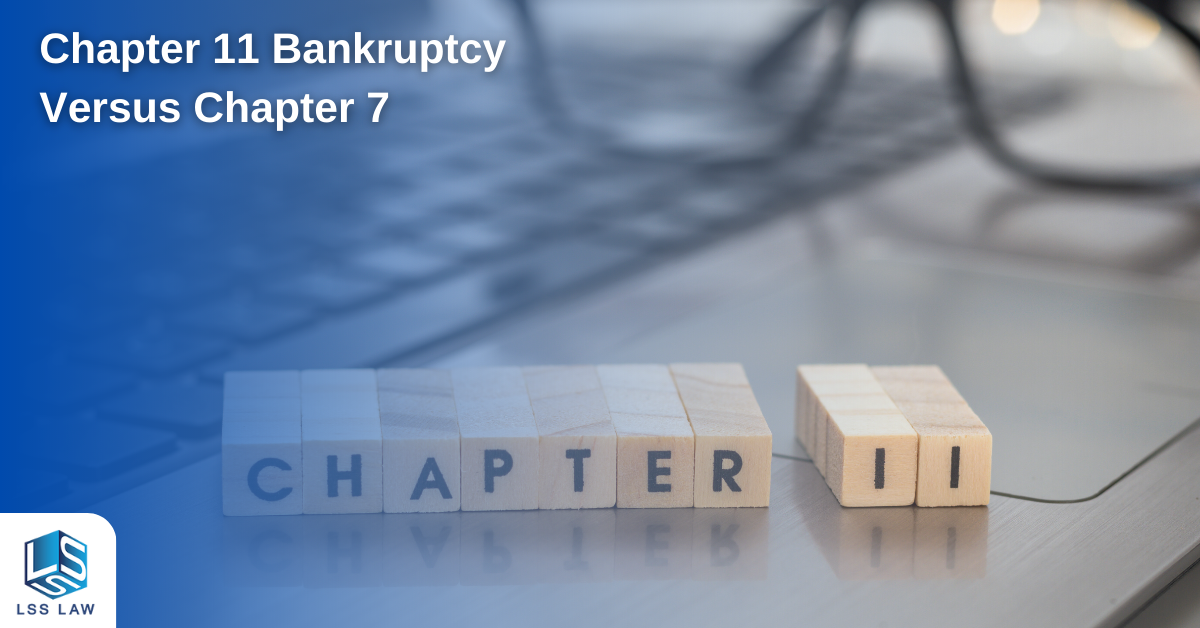The assignment for the benefit of creditors (ABC) is a state law alternative to formal bankruptcy proceedings. It allows an insolvent company to voluntarily assign its assets to a third-party assignee for liquidation and distribution to creditors. Here is a complete guide to understanding the ABC liquidation process in Florida.
What is an ABC Liquidation?
An ABC is an assignment agreement where a company assigns its assets to a third-party assignee to liquidate and distribute the proceeds to creditors. It is an out-of-court debt restructuring option governed by state law, unlike bankruptcy code which is governed by federal law.
Some key features of an ABC include:
- The company’s board and shareholders approve an assignment agreement appointing an assignee
- The assignee takes control of the company’s assets to liquidate and distribute to a company’s creditors
- It allows the company to liquidate and pay creditors without a formal bankruptcy proceeding
- Creditors must file claims with the assignee to receive a distribution
- The assignee liquidates assets and distributes the net proceeds to creditors
- Excess proceeds after creditors are paid are returned to the company
An ABC can be a faster and more cost-effective option than a bankruptcy, while still allowing a company to liquidate and pay creditors. It avoids the publicity and stigma of a bankruptcy filing.
Why Choose an ABC Liquidation?

There are several potential benefits that make an ABC liquidation advantageous compared to a formal bankruptcy:
Avoid Bankruptcy Court Oversight
An ABC is governed by state law and does not require bankruptcy court oversight. The assignee has flexibility in how they liquidate assets and make distributions. There is less court intervention compared to a bankruptcy case.
Lower Costs: The legal fees and assignee fees for an ABC are usually considerably lower than the professional fees in a Chapter 7 or Chapter 11 bankruptcy case. The streamlined process reduces administrative costs.
Speed: An ABC can be completed in several months, while a Chapter 11 bankruptcy can take a year or longer. The faster timeline allows the company to liquidate and move on more quickly.
Maintain Control: The company chooses the assignee and can negotiate ongoing involvement in key decisions to maximize value. A bankruptcy trustee is appointed to take over.
Avoid Public Filing: Unlike bankruptcy, an ABC does not require any public court filings. It allows the company to liquidate quietly and avoid the publicity of bankruptcy.
Sell Assets Free of Liens: In an ABC, the assignee can often sell assets free and clear of liens, security interests, and landlord claims to maximize proceeds. Buyers may pay more knowing they receive a clean title.
Flexible Process: An ABC provides more flexibility in carrying out the liquidation than in a bankruptcy. There is less court oversight throughout the process.
For these reasons, an ABC liquidation can be advantageous for many companies compared to filing Chapter 7 or Chapter 11 bankruptcy. It provides an efficient state law process to liquidate and pay creditors outside of federal bankruptcy court.
How Does the ABC Process Work?
If an ABC liquidation is determined to be the best course of action, here are the key steps in the assignment process:
1. Select an Assignee
The corporation will select a qualified assignee to take the assignment of assets and administer the liquidation. The assignee should have relevant industry experience and expertise.
2. Board and Shareholder Approval
An ABC requires the approval of the board of directors and shareholders. They approve an assignment agreement appointing the assignee.
3. Execute Assignment Agreement
The corporation executes a general assignment agreement transferring all assets to the assignee. The agreement outlines the assignee’s powers and duties.
4. Assignee Takes Control
The assignee takes possession and legal title to all the company’s assets to liquidate them and distribute proceeds.
5. Liquidate Assets
The assignee sells the company’s assets, which may include inventory, real estate, equipment, intellectual property, and accounts receivable. Assets can often be sold free and clear of liens and security interests.
6. Pay Secured Creditors
Proceeds from asset sales are used to pay secured creditors up to the value of their collateral. Any excess proceeds may be available for unsecured creditors.
7. Notice to Creditors
The assignee provides notice to all creditors of the assignment. Creditors must file claims by the bar date to share in distributions.
8. Distributions to Creditors
The assignee makes distributions to creditors who properly file claims. The timing and amount of distributions depend on liquidated assets and filed claims.
9. Excess Funds Returned
After creditors are fully paid, any excess proceeds are returned by the assignee to the assignor company.
10. Process Concludes
Once the liquidation process is fully administered and creditors are paid, the ABC concludes. The assignee files its final report and accounting.
This outlines the general steps in an ABC liquidation. The qualified assignee handles details of asset sales, and claim distributions, and executes the process efficiently. With an experienced attorney like Zach B. Shelomith guiding you, an ABC can be an effective alternative to bankruptcy liquidation for companies needing a fresh start.
What Assets Are Included in an ABC?
When a company assigns its assets to an assignee under an ABC, what property is included? Here are the typical assets that would be assigned:
- Cash and Bank Accounts – All cash, checking accounts, savings accounts, and certificates of deposit.
- Accounts Receivable – Outstanding customer invoices and accounts receivable.
- Inventory – All inventory including raw materials, work-in-progress, and finished goods.
- Equipment – Machinery, tools, furniture, vehicles, and other equipment.
- Real Property – Any real estate, land, or buildings owned by the company.
- Intellectual Property – Patents, trademarks, copyrights, trade secrets, and other IP.
- Contracts – Any executory contracts and leases.
- Investments – Stocks, bonds, notes, or other financial assets.
- Causes of Action – Legal claims or lawsuits the company could bring.
All tangible and intangible assets of the company are assigned to the assignee in an ABC. If certain key assets are excluded, creditors may challenge the assignment as a fraudulent transfer.
The assignee’s role is to thoroughly identify and take control of all these assets to liquidate them and obtain the maximum value. With complete access to assets, the assignee can conduct an orderly wind down.
Key Parties in an ABC Liquidation
There are several important parties involved in an ABC liquidation process:
- Assignor: The assignor is the insolvent company assigning its assets and commencing the ABC. The company’s stakeholders must approve entering into the assignment.
- Assignee: The assignee is the third party who takes the assignment of the company’s assets. They liquidate the assets and administer the distributions to creditors. The assignor selects the assignee.
- Secured Creditors: Secured creditors have security interests or liens on particular assets. They are entitled to payment from the sale of their collateral.
- Unsecured Creditors: Unsecured creditors do not have collateral. They receive a distribution from the net proceeds of unencumbered assets.
- Creditors Committee: A creditors committee may be formed to represent the interests of unsecured creditors in the process. Committees are not mandatory.
- Buyers of Assets: Buyers purchase the assignor company’s assets from the assignee as part of the liquidation.
- Equity Holders: The company shareholders receive any surplus after creditors are paid in full, but otherwise have limited rights.
Each involved party has different interests in the ABC liquidation process. Our experienced business bankruptcy attorneys can advise assignors on balancing these interests to meet their objectives.
Frequently Asked Questions
What is Chapter 11 bankruptcy in simple terms?
Chapter 11 bankruptcy allows a business to reorganize its debts and continue operating under a court-approved reorganization plan. The business works with its creditors to develop a repayment plan, allowing it to restructure debts and emerge from bankruptcy as a viable company.
What is the difference between Chapter 11 and Chapter 13 bankruptcy?
The main differences are:
- Chapter 11 is for businesses, while Chapter 13 is for individuals.
- Chapter 11 allows the business to continue operating, while Chapter 13 requires a repayment plan from disposable income.
- Chapter 11 allows for the restructuring of business debts, while Chapter 13 focuses on consumer debts like medical bills and credit cards.
- Chapter 11 gives wider options like selling assets or merging; Chapter 13 offers a basic repayment plan.
- The Chapter 11 process is longer, more complex, and expensive compared to Chapter 13.
Does Chapter 11 wipe out all debt?
No, Chapter 11 bankruptcy does not discharge all of a business’s debts automatically. The debts are restructured and consolidated under a court-approved plan. Some debts will be reduced, others repaid at a lower interest rate over time. Certain debts like taxes and fraud claims are not discharged. The business must continue making payments under the plan to emerge from Chapter 11.
What is an example of a Chapter 11 bankruptcy?
Many airlines have used Chapter 11 to reorganize and reduce their debts while still operating flights. American Airlines filed Chapter 11 in 2011 and reduced labor costs, terminated pension plans, and restructured debt, allowing it to emerge as a profitable company in 2013. Other examples are retailers like Sears and Gymboree which used Chapter 11 to close unprofitable stores and cut costs while continuing to sell merchandise.
Contact Us to Help Your Business

The ABC process allows a struggling business to liquidate its assets in an orderly fashion and distribute proceeds to creditors outside of bankruptcy court. With an experienced bankruptcy attorney’s counsel, an ABC provides a viable alternative to filing Chapter 7 liquidation. To explore your options for a fresh financial start, contact the seasoned legal team at LSS Law today.
To learn more or schedule a consultation with our legal team, contact us today.






